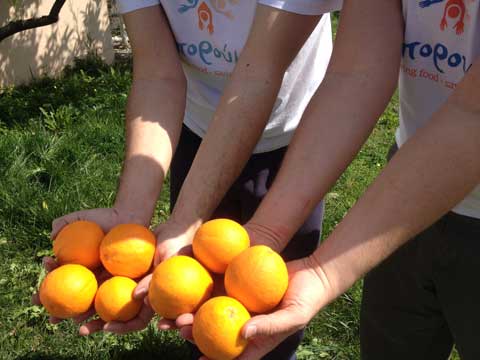- About
- Topics
- Story
- In-Depth
- Picks
- Opinion
- News
- Donate
- Signup for our newsletterOur Editors' Best Picks.Send
Read, Debate: Engage.
| October 26, 2016 | |
|---|---|
| topic: | Health and Sanitation |
| tags: | #Coca Cola, #obesity, #South Africa, #sugar tax |
| located: | South Africa |
| by: | Shasha Seakamela |
The scale of taxation that would be required to make even a dent in obesity rates would be so vast that any government that attempted it would not be in government for very long.
Yet come 2017, South Africans with a sweet tooth will be punished with a higher tax on anything sugary. Earlier this year, South Africa's Finance Minister Pravin Gordhan announced a proposal to introduce a tax on sugar-sweetened beverages effective from April 1, 2017 to help reduce excessive sugar intake in one of Africa’s most obese countries.
South Africa continues to be one of the world's most cost-competitive producers of high quality sugar, while at the same time having the highest instances of obesity in sub-Saharan Africa. According to data published by the Organisation for Economic Cooperation and Development, almost 27 percent of South Africans older than fifteen years of age are obese.
“South Africans’ consumption of sugar through processed foods and soft drinks has increased by 33 percent since 1994 and the country consumes about three times more Coca-Cola products than the global average," according to Lisa-Claire Ronquest-Ross, a researcher at the Department of Food Science at Stellenbosch University.
A sugar tax has been mooted by a growing number of consumer bodies and health experts who have been calling for a tax on Sugar-Sweetened Beverages (SSBs) to help curb the tide of obesity in SA. But it seems many agree in principle that the sugar tax is a good place to start to tackle some of the country's health problems. At the same time, local critics allege that the introduction of a sugar tax in SA would cause a reduction in gross domestic product and loss of jobs.
In 2016 Britain also launched a strategy to tax companies selling sugary soft drinks, joining Belgium, France, Hungary and Mexico, all of which have imposed some form of tax on drinks with added sugar. In the British government’s argument, the levy is squarely aimed at high-sugar drinks, particularly fizzy drinks, which are popular among teenagers.
In Mexico, the sugar-sweetened beverage industry has penetrated and changed the core of Mexican culture. Mexico has been struggling with an obesity problem, and it now has a sugar tax. Although the Mexican government agrees that the journey has been turbulent, the difference is that Mexico dared to take the first step towards taxing sugary drinks.
“While neither Coca-Cola nor the bottling group are opposed to taxes, they believe that the charge being mooted by the government is discriminatory and will have a huge economic impact. Commitments around jobs and the like will have to be reviewed in the context of a tax that will have a huge catastrophic effect," said Vukani Magubane, public affairs director for Coca Cola Southern and East Africa.
No one doubts that South Africa has to tackle obesity; however, the question is how? Companies such as Coca-Cola and others argue that the tax is discriminatory because sugar-sweetened drinks are only a small share of the sugary products being consumed. While at the same time they agree that they could work with the government to find other ways to tackle obesity and sugar consumption.
Many countries, particularly in the developing world, do not have the resources to mount individual level nutrition surveys as these are both known to be prohibitively expensive and labor-intensive. In South Africa only one large-scale study has ever been conducted: the National Food Consumption Survey conducted in 1999.
“It does work, provided it is done well. South Africa will now need to determine the level at which they introduce the tax, it cannot be too low or too high,” says tax expert Kyle Mandy from the accounting firm PwC.
By copying the embed code below, you agree to adhere to our republishing guidelines.
